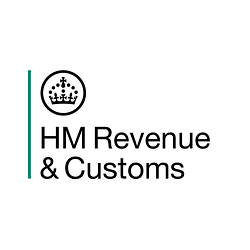
News -
Self Assessment tips for tax agents
Self Assessment tips for tax agents
Here are some top tips for tax agents ahead of the Self Assessment (SA) deadline on 31 January 2025.
Registering and reactivating SA
It takes longer to process tax returns from customers who haven’t registered for SA prior to submitting their tax return or who didn’t reactive their SA account.
People who are new to SA must register with HMRC so they can be set up on the system and receive a notice to file.
If your client has previously been in SA and didn’t file a tax return last year, make sure their SA account is reactivated before submitting their tax return. Returning SA customers do not need to register as new, as they already have a Unique Taxpayer Reference (UTR). Information on reactivating SA can be found on GOV.UK.This can be done by the client in their online account, or the agent can use webchat, call or use the print and post forms for the self-employed and not self-employed.
Quickest way to get your clients tax details
Use the Income Record Viewer to see your client’s:
- PAYE information for the current year plus the 4 previous tax years
- employment records, including time in employment, PAYE reference, taxable benefits and any gap where no record is held by HMRC
- income record
- state and private pension information
- latest tax code for the current tax year including all allowances and deductions
How to get tax returns and repayments right
To help speed up repayment requests it’s essential you:
- register or reactivate your client’s account for SA and wait until they receive their notice to file before submitting their tax return.
- check the client’s details are correct and up-to-date, this includes their bank sort code/ account number, UTR, National Insurance number, name and address
- leave 14 days after making a payment before you request a repayment otherwise it will be delayed
- ensure repayment requests for clients who were previously bankrupt are submitted using their post bankruptcy UTR
- notify HMRC of the capacitor if the client died before submitting their tax return and before requesting a repayment
- encourage your clients to receive their repayment electronically – BACs is the quickest and securest method
Marriage allowance sequencing
Tax returns that include Marriage Allowance have to be submitted in the correct sequence to avoid delays.
Step 1: the person transferring the allowance (transferor) should submit their tax return first if the person receiving the allowance (recipient) is also in SA.
Step 2: the recipient should leave 72 hours after the transferor has submitted their tax return before submitting theirs.
Waiting for a reply?
Use the Where’s My Reply tool to check if the due date has passed before using our webchat service or the new option for repayments when you call.
Stopping Self Assessment
If your client needs to stop SA or withdraw their notice to file you should contact HMRC as soon as possible. You can do this using webchat, by calling or writing to us.
Your client can also notify us. Information on how to do this is on GOV.UK which you can pass on to them to action.
If customers don’t tell us their circumstances have changed and they no longer need to be in SA, then we’ll continue to write to them, and they may get a penalty if they don’t file on time.
Submitting a tax return as an amendment
It's good practice to submit your client’s tax return as an original, not as amendment to avoid delays.
We receive a high number of tax returns submitted as an amendment using 3rd party software, but we have not received the original tax return.
This results in delays because these tax returns cannot be processed automatically. To ensure tax returns are processed quickly, submit the original tax return as normal and not as an amendment.
Repayments through PAYE
Check with your client if they received a repayment through PAYE and it’s included in their tax return before you submit a repayment claim through SA. If a repayment has already been made through PAYE the case is flagged on a worklist which means HMRC will have to check the position manually. This will slow down your client’s claim. There is also a possibility that your client will be paid twice and will then have to repay HMRC.
Prepare online sellers
Tell your clients about the new reporting rules for digital platforms, and the importance of accurately reporting their online sales of goods and services.
By 31 January 2025, online platforms must report to HMRC anyone who sells 30 or more items or earns approximately £1,700 or more in a calendar year.
If your client has sold goods or services on an online platform, such driving a cab or renting a property, and hasn’t paid the correct amount of tax, then work with them to put it right.
Use our online ‘check if you need to do a tax return’ tool to see if your client needs to complete a tax return.
Find information fast online
Our new agent handbook on GOV.UK is the place to go to help you find guidance. This includes information on registering as an agent, client authorisations, transacting with HMRC and much more.
We’ve added some new tips to help you get the best out of the GOV.UK website and how to find old or archived pages on the National Archives.
The handbook is a new way to present information that mostly already exists on GOV.UK. We want to know what you think of this format and how we could develop it in the future. Give us your views by using the feedback link on the front page of the handbook.
Related links
- Check how to register for Self Assessment
- Agent Dedicated Line — Self Assessment or PAYE for individuals
- Register if you’re a Self Employed sole trader
- Registering for Self Assessment and getting a tax return
- Get access to the Income Record Viewer for agents
- Check when you can expect a reply from HMRC
- Self Assessment tax returns
- Make a voluntary disclosure to HMRC
- Check if you need to send a Self Assessment tax return
